The latest dwelling value results from CoreLogic would be discouraging for anyone hoping that the Reserve Bank of Australia’s (RBA) November interest rate hike would stop Australian house prices from rising.
According to CoreLogic’s daily dwelling values index, values across the five major capital city markets increased by 0.6% in March, with Perth (1.8%), Adelaide (1.1%), and Brisbane (1.0%) leading the way.
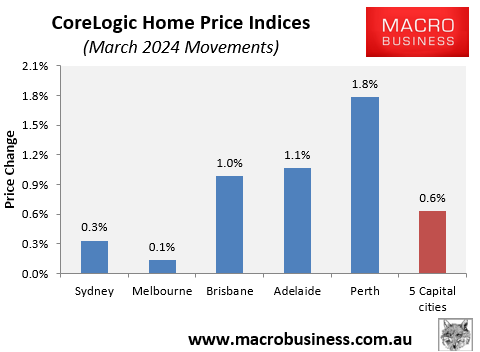
Over the first quarter of 2024, dwelling values rose by 1.7% at the 5-city aggregate level, again driven by Perth (5.5%), Adelaide (3.5%), and Brisbane (3.1%):
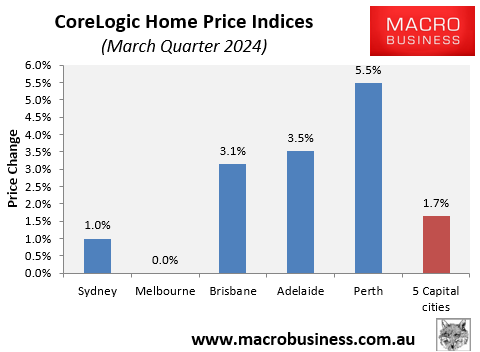
The rebound in home values has been spectacular.
As illustrated in the next chart, values at the 5-city aggregate level have risen by 11.8% since bottoming out on 29 January last year, with all major capitals except Melbourne posting double-digit rebounds:
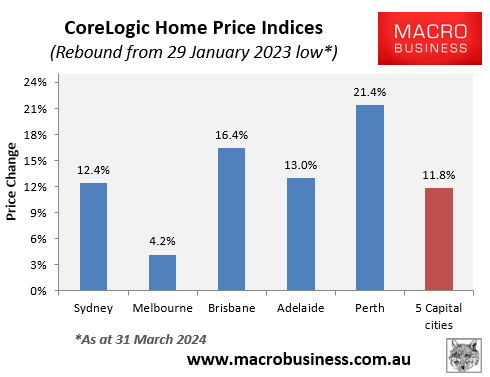
The next chart plots the 28-day value change as a time series across the five major capital city markets:
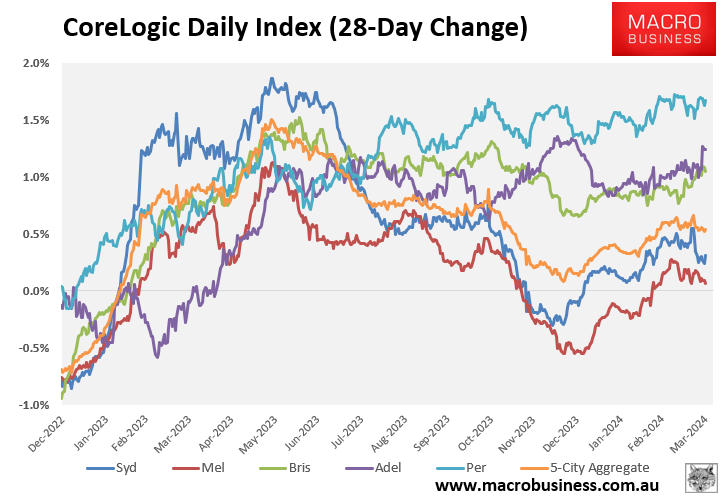
As you can see, Perth, Adelaide, and Brisbane have recorded much stronger value growth than Sydney and Melbourne since mid-2023.
The primary reason for the strong rebound in home values in the face of interest rate rises and declining borrowing capacity is obvious: record immigration-driven population growth:

Australia’s population grew by a record 660,000 in the year to September 2023, driven by a record net overseas migration of nearly 550,000.
This unprecedented population growth has occurred against the background of falling dwelling construction, leading to an extreme housing shortage and FOMO (Fear of Missing Out”) among home buyers.
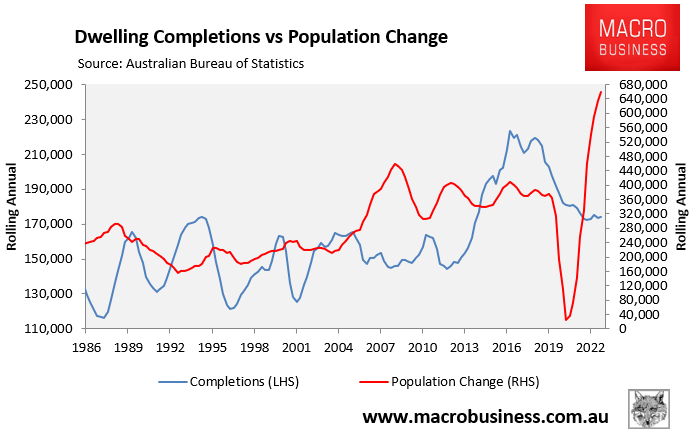
If the RBA cuts interest rates as expected later in the year, it will add more fuel to the house price bonfire.

